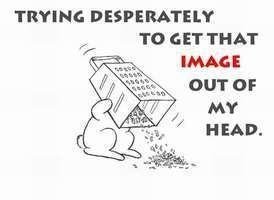This article got me thinking, because it’s not something I’ve been involved with since the kids finished homeschooling (if such a thing ever happens) and went off to college. Go ahead and read the thing first, as it sets the stage for what follows.
I’ve often been asked what books I steered my own kids towards during their schooling, so here’s the group from which I drew. They are the books that every child should have read before age 18, in alphabetical order by category*. It’s very biased towards Western Civilization, for obvious reasons, and is by no means comprehensive, but enough to provide a good foundation. (The Son&Heir, for example, was so taken by Daphne du Maurier’s Rebecca that he ended up reading everything she ever wrote. Whatever they find interesting, let them run with it.)
Kim’s Recommended Reading List For Homeschoolers
Politics:
1984 — George Orwell
Animal Farm — George Orwell
Of Civil Government — John Locke
On Liberty — John Stuart Mill
Our Enemy, The State — Albert Jay Nock
The Prince — Niccolo Machiavelli
Economics:
Basic Economics — Charles Sowell
The Wealth of Nations — Adam Smith
History:
From Dawn To Decadence — Jacques Barzun (this book is required reading; it can serve as a general history work and in a pinch, can be the only history book read before college)
Heroes — Paul Johnson (biographies)
A History Of The American People — Paul Johnson
A History Of The Jews — Paul Johnson
The Iliad, The Odyssey — Homer
The Proud Tower — Barbara Tuchman
United States Declaration of Independence (together with the Articles of Confederation; United States Constitution and the Federalist Papers)
Military History:
Carnage And Culture — Victor Davis Hanson
The First World War — Martin Gilbert (or John Keegan)
A History Of Warfare — John Keegan
The Second World War — John Keegan
A War Like No Other — Victor Davis Hanson
Philosophy/Religion:
The Bible
The Book of Journeyman — Albert Jay Nock
Confessions — St. Augustine
Essays Moral and Political — David Hume
Intellectuals — Paul Johnson
Meditations — Marcus Aurelius
Memoirs of a Superfluous Man — Albert Jay Nock
The Republic — Plato
Summa Theologica — St. Thomas Aquinas
Plays (Shakespeare):
Coriolanus
Hamlet
Julius Caesar
King Lear
Macbeth
A Midsummer Night’s Dream
Othello
Richard III
Romeo & Juliet
(Shakespeare’s major History Plays — Henry IV etc. — require a concurrent English history lesson, otherwise the characters are meaningless and the dialogue almost incomprehensible.)
Plays (Other):
Billy Liar — Keith Waterhouse (the novel is good too, but the play is the thing)
Faust — Goethe
The Importance of Being Earnest — Oscar Wilde
Lysistrata — Aristophanes
‘Tis A Pity She’s A Whore — John Ford
Waiting For Godot — Samuel Becket
Poetry: (all their works, with recommendations)
Alfred, Lord Tennyson — The Eagle, Charge Of The Light Brigade
Matthew Arnold — Dover Beach
Rupert Brook — The Soldier
Samuel Taylor Coleridge — The Rime Of The Ancient Mariner
John Donne — The Good Morrow and A Valediction: Forbidding Mourning
John Keats — Ode To A Nightingale
Rudyard Kipling — The Gods Of The Copybook Headings
Richard Lovelace — To Althea, From Prison
Shakespeare — all the Sonnets (as many as can be digested)
Percy Shelley — Ozymandias
Walt Whitman — Leaves of Grass
William Wordsworth — Tintern Abbey, The Solitary Reaper
Long Fiction:
Adventures of Huckleberry Finn — Mark Twain
Alice In Wonderland — Lewis Carroll
The Grapes of Wrath — John Steinbeck
The American — Henry James
Anna Karenina — Leo Tolstoy
As I Lay Dying — William Faulkner
Fahrenheit 451 — Ray Bradbury
A Handful of Dust — Evelyn Waugh
The Chronicles of Narnia — C.S. Lewis
The Count Of Monte Cristo — Alexandre Dumas
Don Quixote — Cervantes
A Farewell To Arms — Ernest Hemingway
Emma — Jane Austen
To Kill a Mockingbird — Harper Lee
The Invisible Man — H.G. Wells
Zorba the Greek — Nikos Kazantzakis
Gulliver’s Travels — Jonathan Swift
The Mayor Of Casterbridge — Thomas Hardy
The Sound and the Fury — William Faulkner
Fathers and Sons — Ivan Turgenev
Stranger in a Strange Land — Robert A. Heinlein
Les Misérables — Victor Hugo
Carry On, Jeeves — P. G. Wodehouse
Lord Of The Flies — William Golding
Crime and Punishment — Feodor Dostoyevsky
Madame Bovary — Gustave Flaubert
The Harry Potter Stories — J.K Rowling
Women In Love — D.H. Lawrence
The Complete Sherlock Holmes — Arthur Conan Doyle
Catch-22 — Joseph Heller
The Portrait Of A Lady — Henry James
The Wind In The Willows — Kenneth Grahame
Rebecca — Daphne du Maurier
Robinson Crusoe — Daniel Defoe
Sons And Lovers — D.H. Lawrence
Uhuru — Robert Ruark
Short Fiction (Authors, with recommendations):
Daphne du Maurier (The Birds, Don’t Look Now)
Ernest Hemingway (The Snows of Kilimanjaro, The Killers)
Edgar Allan Poe (The Pit And The Pendulum)
Herman Melville (Bartleby the Scrivener)
Ambrose Bierce (An Occurrence at Owl Creek Bridge)
Rudyard Kipling (The Jungle Book)
Flannery O’Connor (A Good Man Is Hard to Find, Good Country People)
Guy de Maupassant (Boule de Suif, The Necklace)
James Thurber (The Secret Life Of Walter Mitty, The Unicorn in the Garden)
O. Henry (The Gift Of The Magi, The Cop And The Anthem)
Raymond Carver (Where I’m Calling From, Little Things)
Saki (Sredni Vashtar, The East Wing)
William Faulkner (Mountain Victory, A Rose For Emily)
Erotica:
Ars Amatoria — Ovid
Delta Of Venus — Anaïs Nin
Lady Chatterley’s Lover — D.H. Lawrence
Memoirs Of A Woman Of Pleasure (or Fanny Hill) — John Cleland
The School of Whoredom — Pietro Aretino
*Please note that your opinions may vary — and indeed they should — depending on what direction you’re setting your kids along. (For example: if your bent is more to the religious, then obviously the Bible and / or St. Augustine will require more time and dedication, and so on.)

